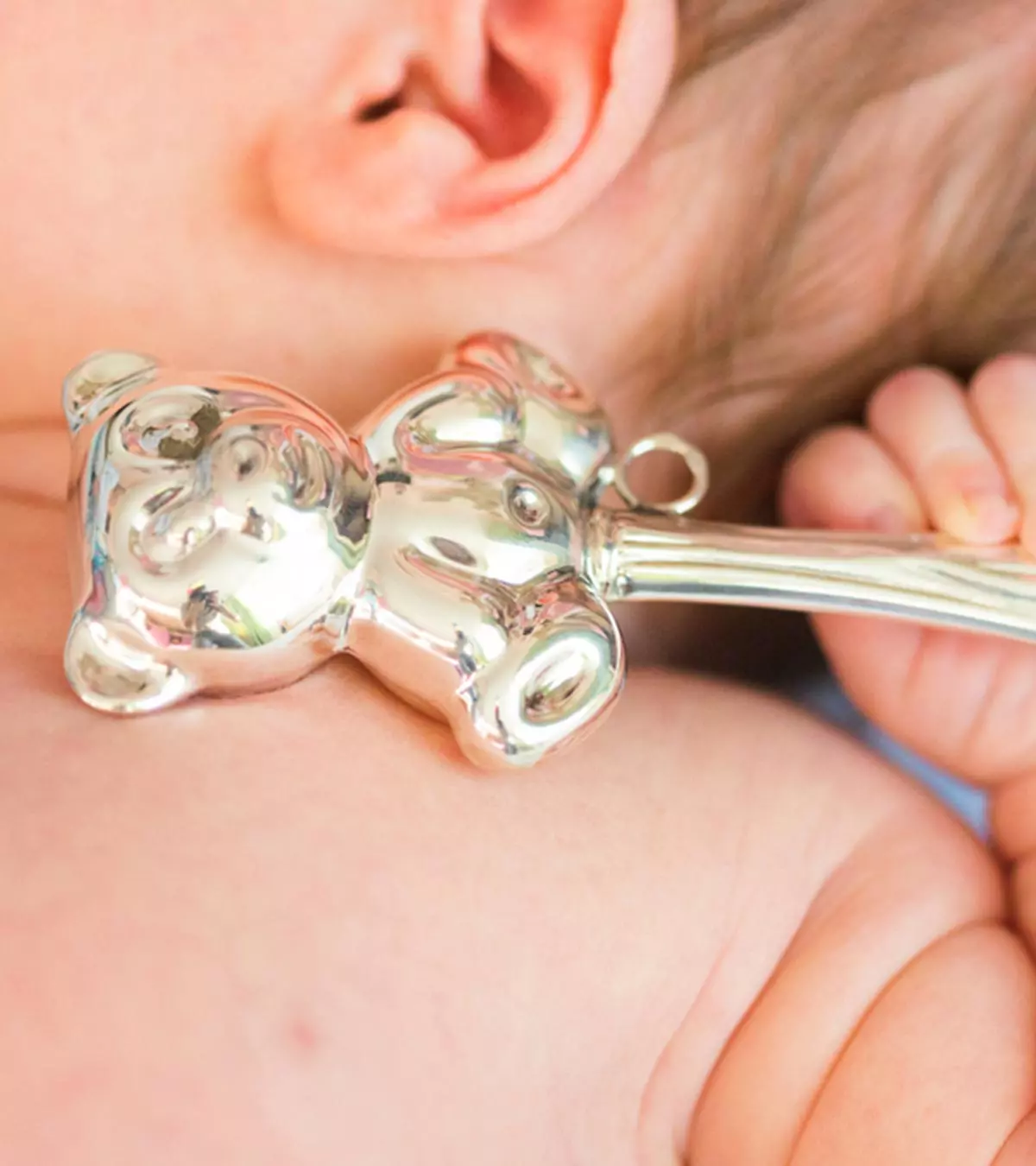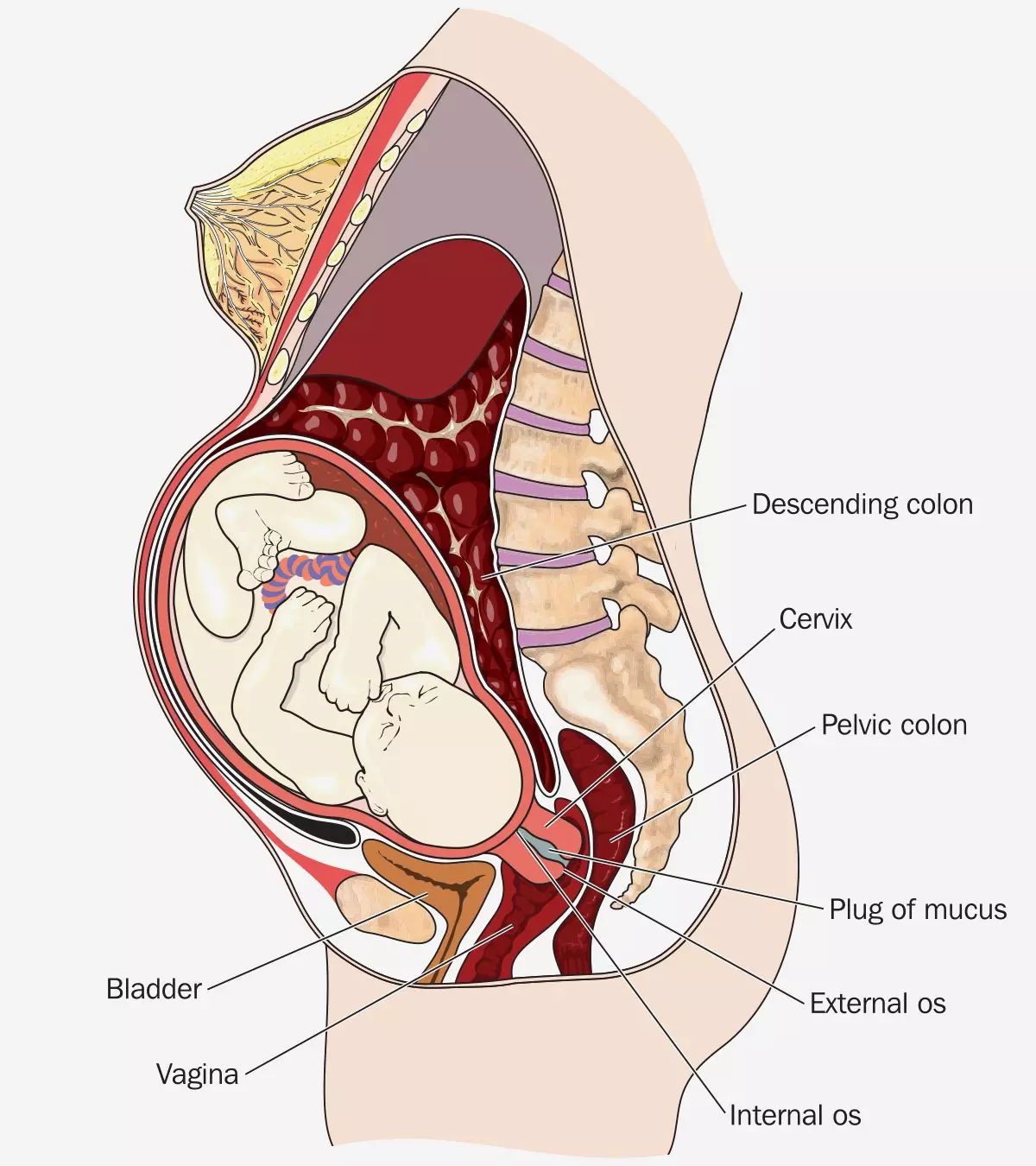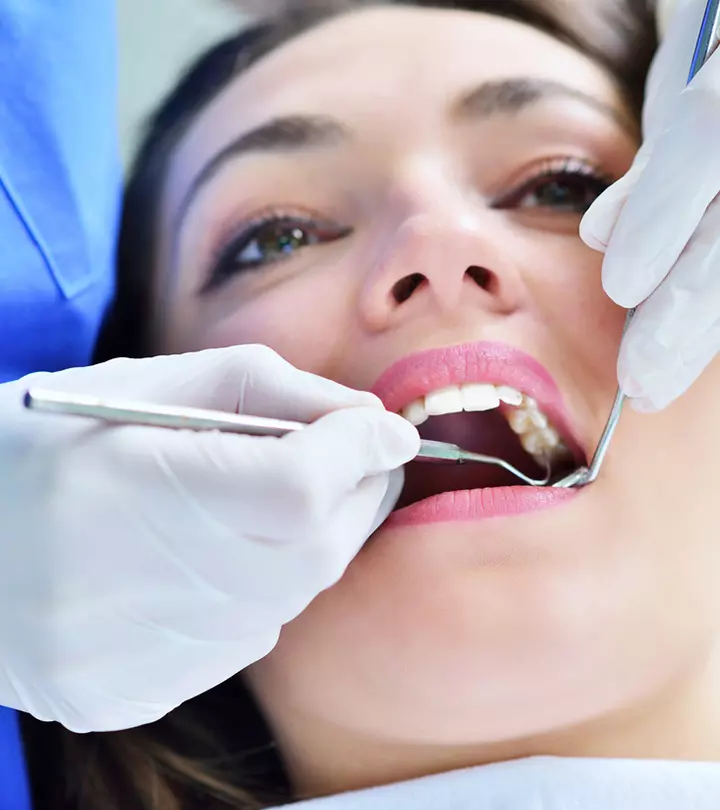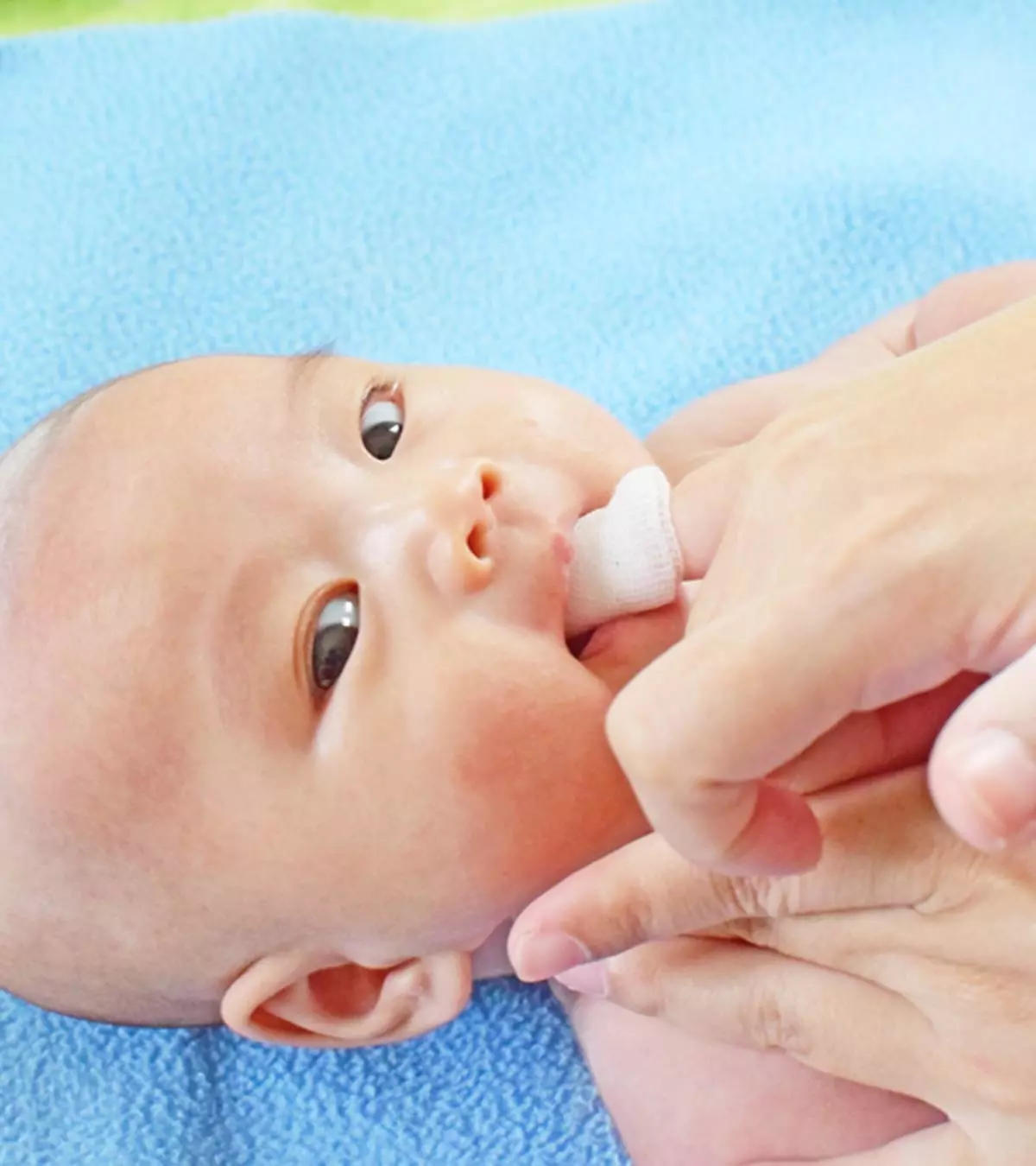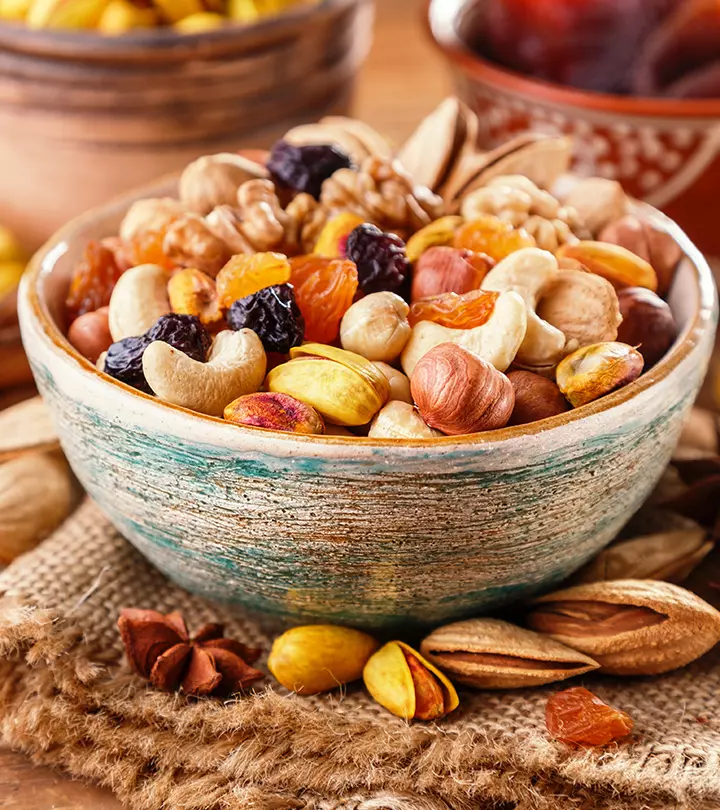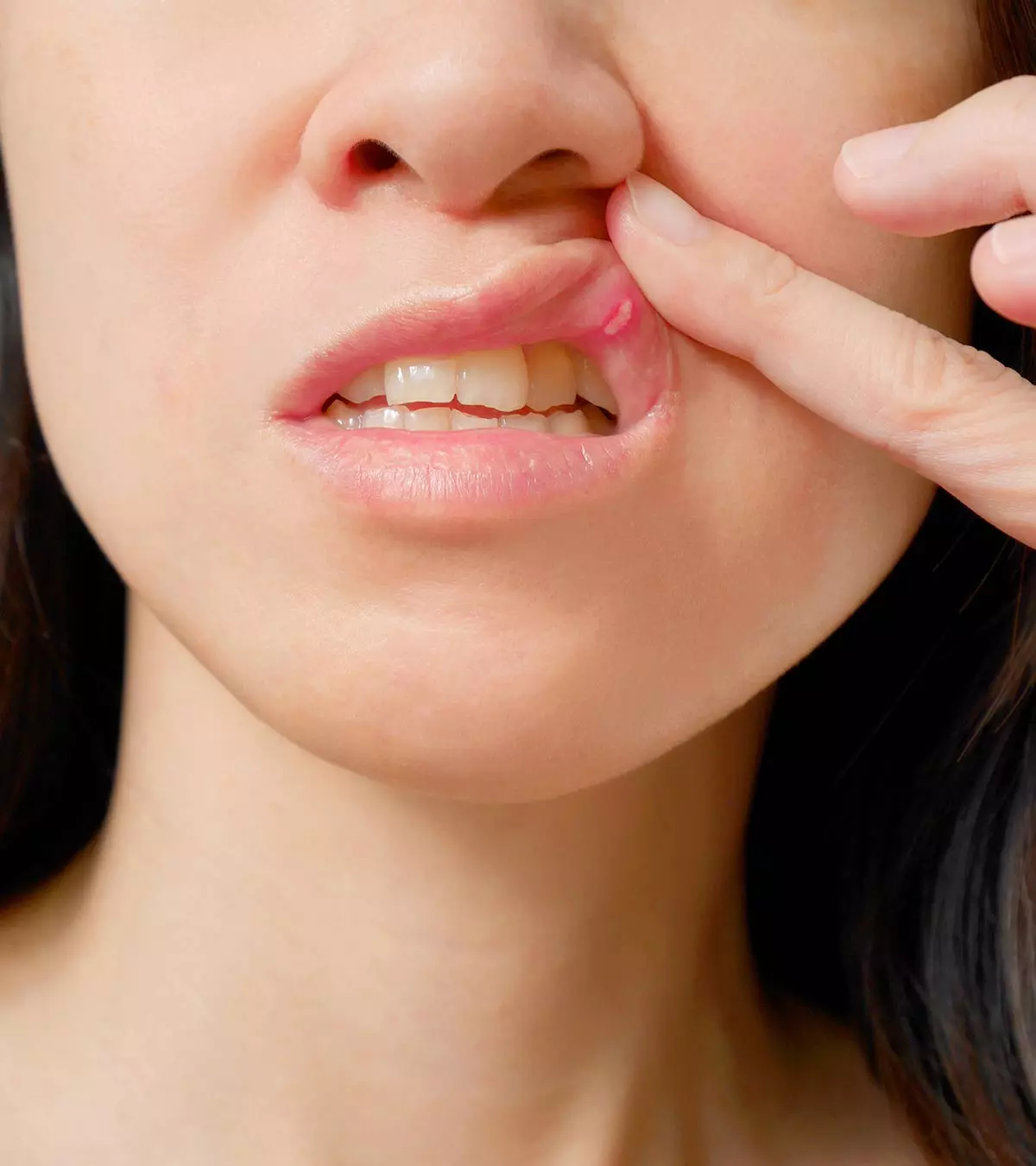
Image: ShutterStock
Key Pointers
- Mouth ulcers or canker sores are common during pregnancy.
- They may be caused by hormone fluctuations, stress, food sensitivity, hematinic deficit, cigarettes, and chipped teeth.
- Mouth ulcers usually resolve within one to three weeks.
- Symptoms of mouth ulcers include red, pink, white, or gray lesions on the tongue, lips, or inner cheeks.
- Home remedies such as avoiding hot and acidic foods, or rinsing with salt water can be used to treat mouth ulcers during pregnancy.
Mouth Ulcers During Pregnancy
Canker sores, mouth ulcers, or aphthous stomatitis in pregnancy are common (1). You may have a single sore at one time or three to four together. These small water-filled oral lesions are usually found on the mouth’s soft tissue, such as the tongue, inside the lips, and inner cheeks (2).
Mouth ulcers may cause pain and discomfort during eating and speaking, but they are otherwise harmless. They are usually temporary and go away in one or two weeks (3). Sometimes, aphthous stomatitis may occur recurrently but does not affect the baby in any way.
According to the UK’s National Health Service (NHS), mouth ulcers can vary in color, appearing red, pink, white, or gray (4). They often cause a burning sensation and, in some cases, pain (5). This discomfort may make it difficult to brush your teeth (6). In some instances, aphthous ulcers can temporarily lose appetite due to pain while chewing. However, they are usually small, not exceeding 5mm in diameter, and tend to heal on their own within one to two weeks (3).
Why Do You Get Mouth Ulcers When Pregnant?
The exact cause of mouth ulcers in pregnancy is unknown. However, there are different theories (7) (8) (9) (10).
- Hormonal changes: Fluctuation of hormones during pregnancy could be one of the reasons for canker sores on your lips, inside the cheeks, or on your tongue.
 Quick fact
Quick fact- Stress or trauma: Physical trauma (toothbrush, tongue bite, etc.) or maternal stress could also cause mouth ulcers. Although there is no specific evidence to prove this theory in the case of pregnant women, they are the common reasons for mouth ulcers.
- Food sensitivity: Food allergies (especially with acidic or spicy foods) might be responsible for canker sores in the mouth.

- HematiniciSubstance for the proper functioning of the blood and prevention of anemia. deficiency: Deficiency of folateiThe vitamin B9 responsible for the formation of red blood cells and healthy cell growth. , iron, and vitamin B12 could also be responsible for developing mouth ulcers. However, taking proper and relevant medications or supplements can help in reducing canker stones. This is a common etiology. According to the National Institutes of Health (NIH), 20% canker sore cases are related to hematinic deficiencies (iron, vitamin B6, folate and B12) (12). However, other deficiencies such as zinc, thiamine, or vitamin D may also be present.
- Others: Stress-induced or maternal salivary changes, a weak maternal immune system, tobacco, or broken teeth or dentures could be some other reasons for getting mouth ulcers.
 Quick fact
Quick factUnderstanding the symptoms and signs will help you figure out what kind of mouth ulcers you have so that you can treat them accordingly.
How To Treat Mouth Ulcers In Pregnancy?
If the mouth ulcers are benign, you can try out some home remedies. But when they are frequent or spreading, you should go to a doctor for diagnosis and treatment.
Home remedies
Here are a few home remedies that might help ease the pain and redness of mouth ulcers (13).
- Try to avoid spicy and acidic foods when you have a mouth ulcer.
- Stop the use of tobacco. It is not only unhealthy for pregnancy but also worsens your mouth ulcers (14).
- You may rinse with salt water or apply hydrogen peroxide and water mixture (1:1) on the sores. Apply ice cubes on the sores to relieve pain.

- Use hexadine mouthwash twice or thrice a day to rinse your mouth and kill bacteria (15).
- Cantaloupe, celery, and carrot juice during pregnancy are known to be helpful. But ask your healthcare provider before you consume these (9).
- Tulsi leaves may also help manage mouth ulcers during pregnancy. According to a study, “Osmium sanctum leaves contain 0.7% volatile oil, with approximately 71% eugenol and 20% methyl eugenol. Tulsi leaves can kill over 99% of bacteria and germs in your mouth and relieve ulcer symptoms. Furthermore, it prevents bad breath, plaque, tartar formation, and dental cavities (16).”
- Drink a lot of water but do not have acidic or fizzy drinks.
Medications
In case your mouth ulcers do not disappear after two weeks, or they are causing discomfort, then consult a doctor.
- Your doctor might prescribe different toothpaste or even a gel to apply on the mouth ulcers.
- Based on your health, the doctor might suggest certain nutrient-rich foods or supplements.
- The doctor might prescribe medications that would help treat your mouth ulcers.
 Quick tip
Quick tipHow Long Does It Take For Mouth Ulcers To Heal?

It takes one to three weeks for benign mouth ulcers to heal. And it might take longer, say two to four weeks, for multiple or frequent occurrences of mouth ulcers to go away (17). When you are pregnant, you might want to wait for a couple of weeks for canker sores to disappear. If that doesn’t happen, you can go to the doctor.
How To Prevent Mouth Ulcers During Pregnancy?
Prevention is better than cure. Therefore, you should take some precautions during pregnancy to avoid mouth ulcers. Some preventive measures for mouth ulcers include:
- Practice good oral hygiene
- Use soft-bristle toothbrush
- Eat a well-balanced diet enriched with vitamins and minerals
- Stay hydrated
- Manage stress levels by practicing relaxation techniques
- Eat spicy and acidic foods in moderation
- Ensure adequate sleep and rest
Frequently Asked Questions
1. Can mouth ulcers be a sign of an STD during pregnancy?
Some sexually transmitted infections (STIs), such as herpes, can cause mouth ulcers (18). Oral herpes can occur when the herpes virus type 2 (HSV-2) is spread to the mouth during oral sex (19). If you are worried about having an STI, seeking advice from a healthcare provider is crucial.
2. Can mouth ulcers be a sign of oral cancer during pregnancy?
Oral cancers may cause mouth ulcers. It is characterized by lumps or ulcers that are pale, dark red, or discolored. It is often associated with other symptoms such as speech difficulty, swollen lymph nodes, difficulty swallowing, weight loss, numbness and loosening teeth, and bad breath during pregnancy (20).
3. Can mouth ulcers indicate an autoimmune disorder during pregnancy?
Autoimmune disorders such as Lupus or Behcet disease may cause mouth ulcers (21). It can be promptly diagnosed by conducting a blood test.
4. Can mouth ulcers signify a bacterial or viral infection during pregnancy?
Mouth ulcers can be a symptom of a bacterial or viral infection, such as hand, foot, and mouth disease (14). Other symptoms associated with the disease include fever, headache, loss of appetite, rash and blisters on the extremities, and sore throat (22).
5. When do mouth ulcers start in pregnancy?
According to gynecologist & obstetrician Dr. Nisarg Patel, “Mouth ulcers can develop at any point during pregnancy, but they are more prevalent in the first and third trimesters. This is likely due to hormonal changes and increased stress on the body during these periods.”
Mouth ulcers in pregnancy may be uncomfortable, but they are unlikely to cause complications. They may occur due to hormonal changes, maternal stress, maternal vitamin deficiency, or food sensitivities. You may notice red, pink, or white ulcers on your tongue or cheeks. These ulcers make eating and talking difficult because of the burning sensation and pain. However, they go away in one to three weeks. Optimal maternal nutrition, rinsing your mouth with salt water, and avoiding spicy foods can help quick recovery. If the mouth ulcers take time to heal, you may contact a doctor for medications.
Infographic: How To Treat Mouth Ulcers In Pregnancy?
Mouth ulcers are a common and sometimes uncomfortable problem during pregnancy. These painful sores can make eating and drinking difficult and even interfere with speaking and daily activities. So if you are experiencing this pain, explore the infographic below for tips on treating it effectively. Illustration: Momjunction Design Team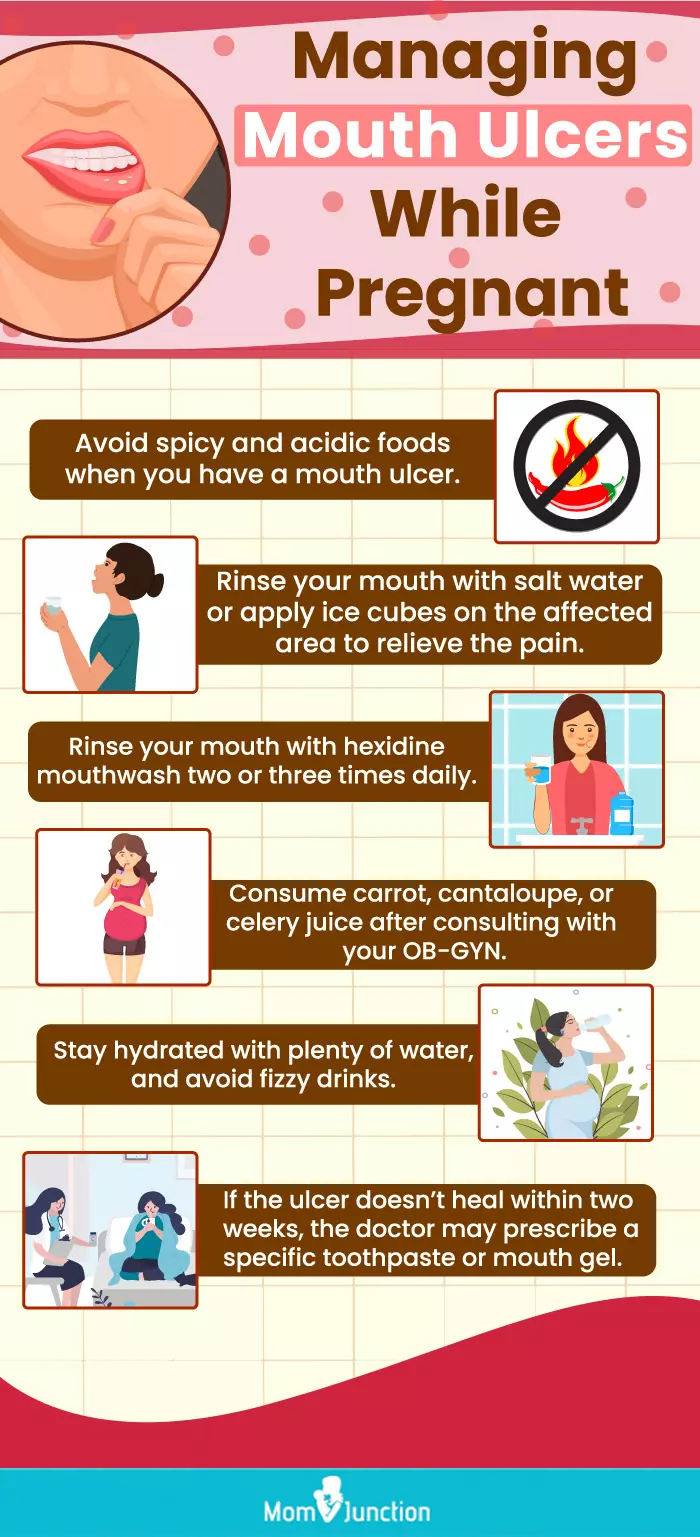
Canker sores are painful sores in the mouth. Learn about their causes, signs and symptoms, diagnosis and treatment in this video.
References
- Fatma Yilmaz et.al; (2024); The effects of pregnancy on oral health salivary ph and flow rate.
https://link.springer.com/article/10.1186/s12903-024-05057-0 - Canker Sores (Aphthous Ulcers).
https://kidshealth.org/en/parents/canker.html - Mouth ulcers.
https://www.betterhealth.vic.gov.au/health/conditionsandtreatments/mouth-ulcers - Mouth ulcer.
https://www.nhsinform.scot/illnesses-and-conditions/mouth/mouth-ulcer/ - Mouth sores.
https://medlineplus.gov/ency/article/003059.htm - Mouth sores and ulcers (canker sores).
https://www.healthdirect.gov.au/mouth-sores-and-ulcers - Aphthous ulcer.
https://dermnetnz.org/topics/aphthous-ulcer - Mouth ulcers.
https://www.nhs.uk/conditions/mouth-ulcers/ - Management of Aphthous Ulcers.
https://www.aafp.org/pubs/afp/issues/2000/0701/p149.html - R. S. Rogers; (1997); Recurrent Aphthous Stomatitis in the Diagnosis of Behcet’s Disease.
https://pc.eymj.org/Synapse/Data/PDFData/0069YMJ/ymj-38-370.pdf - What Do Your Hormones Have To Do With Your Oral Health?
https://health.clevelandclinic.org/hormones-and-oral-health - Recurrent Aphthous Stomatitis.
https://www.ncbi.nlm.nih.gov/books/NBK431059/ - Mouth Ulcer.
https://my.clevelandclinic.org/health/diseases/21766-mouth-ulcer - Mouth sores.
https://www.mountsinai.org/health-library/symptoms/mouth-sores - Apthous Ulcers.
https://students.umw.edu/healthcenter/files/2011/08/Aphthous-Ulcers.pdf - Dhanshri H. Deshmukh et.al; (2024); Overvirw On Mouth Ulcer And Their Treatment With Herbs.
https://wjpr.s3.ap-south-1.amazonaws.com/article_issue/b000fe9db8f1dde8cfb2dc91e448a419.pdf - Crispian Scully and Rosemary Shotts; (2001); Mouth ulcers and other causes of orofacial soreness and pain.
https://pmc.ncbi.nlm.nih.gov/articles/PMC1071433/ - Mouth ulcers.
https://www.mountsinai.org/health-library/diseases-conditions/mouth-ulcers - Herpes – oral.
https://www.mountsinai.org/health-library/diseases-conditions/herpes-oral - Oral cancer.
https://www.mountsinai.org/health-library/diseases-conditions/oral-cancer - Canker Sores.
https://my.clevelandclinic.org/health/diseases/10945-canker-sores - Hand-foot-mouth disease.
https://www.mountsinai.org/health-library/diseases-conditions/hand-foot-mouth-disease
Community Experiences
Join the conversation and become a part of our nurturing community! Share your stories, experiences, and insights to connect with fellow parents.
Read full bio of Dr. Shashwat Jani
- Dr. Nisarg Patel is a gynecologist, obstetrician, and laparoscopic surgeon from Ahmedabad, India, with over 13 years of experience in the field. He did his post graduation in Obstetrics and Gynecology from Pravara Institute of Medical Sciences, Ahmednagar, and holds a fellowship of Reproductive Medicine.
 Dr. Nisarg Patel is a gynecologist, obstetrician, and laparoscopic surgeon from Ahmedabad, India, with over 13 years of experience in the field. He did his post graduation in Obstetrics and Gynecology from Pravara Institute of Medical Sciences, Ahmednagar, and holds a fellowship of Reproductive Medicine.
Dr. Nisarg Patel is a gynecologist, obstetrician, and laparoscopic surgeon from Ahmedabad, India, with over 13 years of experience in the field. He did his post graduation in Obstetrics and Gynecology from Pravara Institute of Medical Sciences, Ahmednagar, and holds a fellowship of Reproductive Medicine.
Read full bio of Rebecca Malachi
Read full bio of Swati Patwal
Read full bio of Dr. Joyani Das











